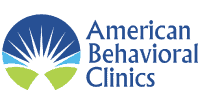How to Stop Gambling and Reign Control of Your Life
In addition to substance use as an addiction, problem gambling is also an addiction. For most of us, gambling is a casual and harmless pastime. It has about the same impact on our day-to-day lives as participating in a weekly bowling league or holding season tickets for the theater. But for some, gambling will become an all-consuming, uncontrollable need that constantly tantalizes the victim with the possibility of the big win, with a mindset that it’s always just one bet away. For many years, compulsive gambling was viewed as a disorder of impulse control similar to pyromania (fire setting) or kleptomania (stealing). However, more and more professionals have come to agree that compulsive gambling is an addiction which has more in common with alcoholism or drug abuse than with the impulse disorders.
Compulsive Gambling is a Progressive Illness That Passes Through Distinct Phases
➤ In the 1st phase, known as the winning phase, betting is a lot of fun, and money is considered well spent just as for any other recreational activity. Family members are generally supportive of the gambler’s activities in this early phase. In fact, gambling is the only addiction in which family members gain something, since they often share the gambler’s excitement and happiness during a run of good luck and they may benefit from the winnings as well.
➤ The 2nd phase, the losing phase, is characterized by gambling more frequently and placing a lot more money at risk. Now, losses exceed winnings and some of the money needed for family expenses is being used for gambling in an attempt to recover losses. This naturally begins to worry spouses, families, and partners. In the final phase, severe depression can be common in, and the gambler may even be at risk for suicide. Alcohol and other drug abuse also may have become a problem somewhere along the line, as 20 percent of compulsive gamblers are also alcoholics.
➤ By the 3rd phase, the gambler is usually at their wits’ end. Creditors hound them, personal careers may have faltered, and their family is in shambles. By the time many compulsive gamblers seek treatment, they are suffering from multiple health, social, and financial problems. Home remedies cannot cure alcoholism and they cannot cure compulsive gambling, either. The gambler’s intentions are good, but the gambler no longer is capable of rational, logical thinking and problem solving. He or she needs professional help to sort things out: to accept responsibility for his or her behavior, to repay debts, to make amends to those injured through abuse or neglect, and to rebuild the family.
Existing Patients and New Patients, Call us to schedule an appointment, get a prescription refill or just to ask a question:
New Patients ONLY - Want to contact us through a form? CLICK HERE to fill out our contact form.





